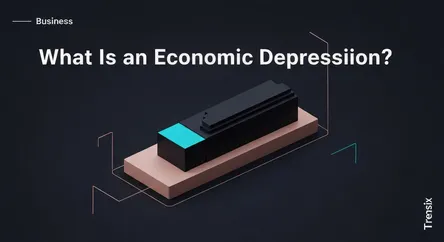Business
What Is an Economic Depression?

Explore economic depressions, severe and prolonged downturns in economic activity that impact employment, trade, and overall financial stability.
What is it?
An economic depression is a severe and long-lasting downturn in economic activity. It is more intense and prolonged than a recession, which is a normal part of the business cycle. A depression is typically characterized by a sharp decline in Gross Domestic Product (GDP) of more than 10%, extremely high unemployment rates often exceeding 20%, and a significant drop in industrial production and international trade. The most famous historical example is the Great Depression of the 1930s, which had a profound global impact and reshaped economic policy for generations.
Why is it trending?
Talk of an economic depression often trends during periods of significant financial uncertainty. With rising inflation, aggressive interest rate hikes by central banks, and geopolitical instability, many people fear a potential global recession. This anxiety leads to discussions about the worst-case scenario: a full-blown depression. Economists and financial analysts debate the likelihood of such an event, comparing current economic indicators to historical downturns, which keeps the term prominent in news cycles and financial discussions.
How does it affect people?
The impact of an economic depression on individuals and society is devastating. Widespread job losses lead to extreme financial hardship, increased poverty, and homelessness. Businesses, both large and small, fail at a high rate. Personal savings can be wiped out due to bank failures and stock market crashes. Access to credit becomes nearly impossible, stalling personal and business investment. The immense stress and uncertainty also take a significant toll on public health and well-being, leading to long-term social and psychological consequences.